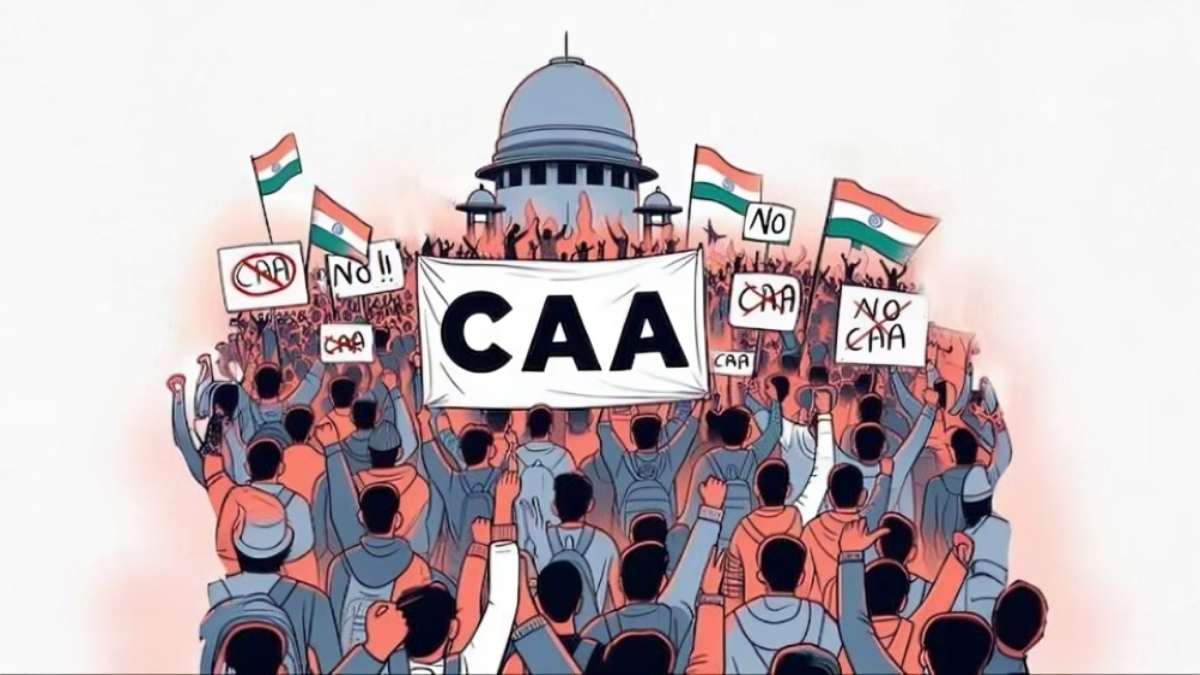The Centre has requested the Supreme Court for an extension to submit a response to the petitions that are seeking a temporary halt on the enforcement of the rules of the Citizenship Amendment Act. Solicitor General Tushar Mehta, representing the Centre, informed the bench led by Chief Justice DY Chandrachud that the CAA does not revoke anyone’s citizenship. The Solicitor General expressed the need for additional time to address the applications that are seeking a suspension of the rules until the constitutional validity of the Citizenship (Amendment) Act, 2019 is determined by the top court.
Chief Justice Chandrachud has granted the Centre a period of three weeks, indicating that the court will address the issue on April 9.
The Supreme Court was reviewing a collection of over 200 petitions related to the contentious law, which was passed on March 15, almost four years after being approved by Parliament. These petitions are seeking a halt to the enforcement of the CAA and the Citizenship Amendment Rules 2024.
Recently, Senior Advocate Kapil Sibal brought up a plea submitted by the Kerala-based Indian Union Muslim League (IUML) to the Supreme Court, questioning the Centre’s decision to enforce the controversial law, especially with the Lok Sabha elections approaching rapidly.
The petitioners who are challenging the law argue that the CAA unfairly targets Muslims based on their religion. They claim that this religious discrimination lacks any reasonable justification and violates the right to equality as per Article 14.
Apart from the IUML, other petitioners include Trinamool Congress leader Mahua Moitra, Congress leader and former Union minister Jairam Ramesh, AIMIM chief Asaduddin Owaisi, Assam Congress leader Debabrata Saikia, NGOs Rihai Manch and Citizens Against Hate, Assam Advocates Association, as well as some law students.
Additionally, the IUML, Debabrata Saikia, Asom Jatiyatabadi Yuba Chatra Parishad (a regional student organization), Democratic Youth Federation of India (DYFI), and the Social Democratic Party of India (SDPI) have also contested the CAA Rules, 2024, through which the CAA was put into effect.
Kerala was the initial state to approach the Supreme Court in 2020 against the CAA, arguing that it violated the Right to Equality as per the Indian Constitution.
Another case challenging the CAA rules has been filed by Kerala in the Supreme Court.
Owaisi, in his plea to the Supreme Court, stated, “The issue with the CAA is not just about the exclusion of granting citizenship, but it is clearly the marginalization of a minority community to selectively target them following the denial of citizenship.”
The AIMIM leader expressed concerns about a potential plan to discriminate against the Muslim community through the National Register of Citizens (NRC).
Throughout the legal proceedings, the Central government maintained its position, asserting that the CAA would not infringe upon the legal, democratic, or secular rights of citizens, and urged the court to reject petitions challenging it.
On March 11, the Central government enforced the CAA five years after its passage in Parliament in December 2019, leading to widespread protests nationwide and drawing significant attention.
The CAA modifies the Citizenship Act of 1955 to offer an expedited route to Indian citizenship for migrants from Afghanistan, Bangladesh, and Pakistan who are Hindu, Sikh, Jain, Parsi, Buddhist, or Christian and arrived in India on or before December 31, 2014, due to religious persecution in their home countries.

